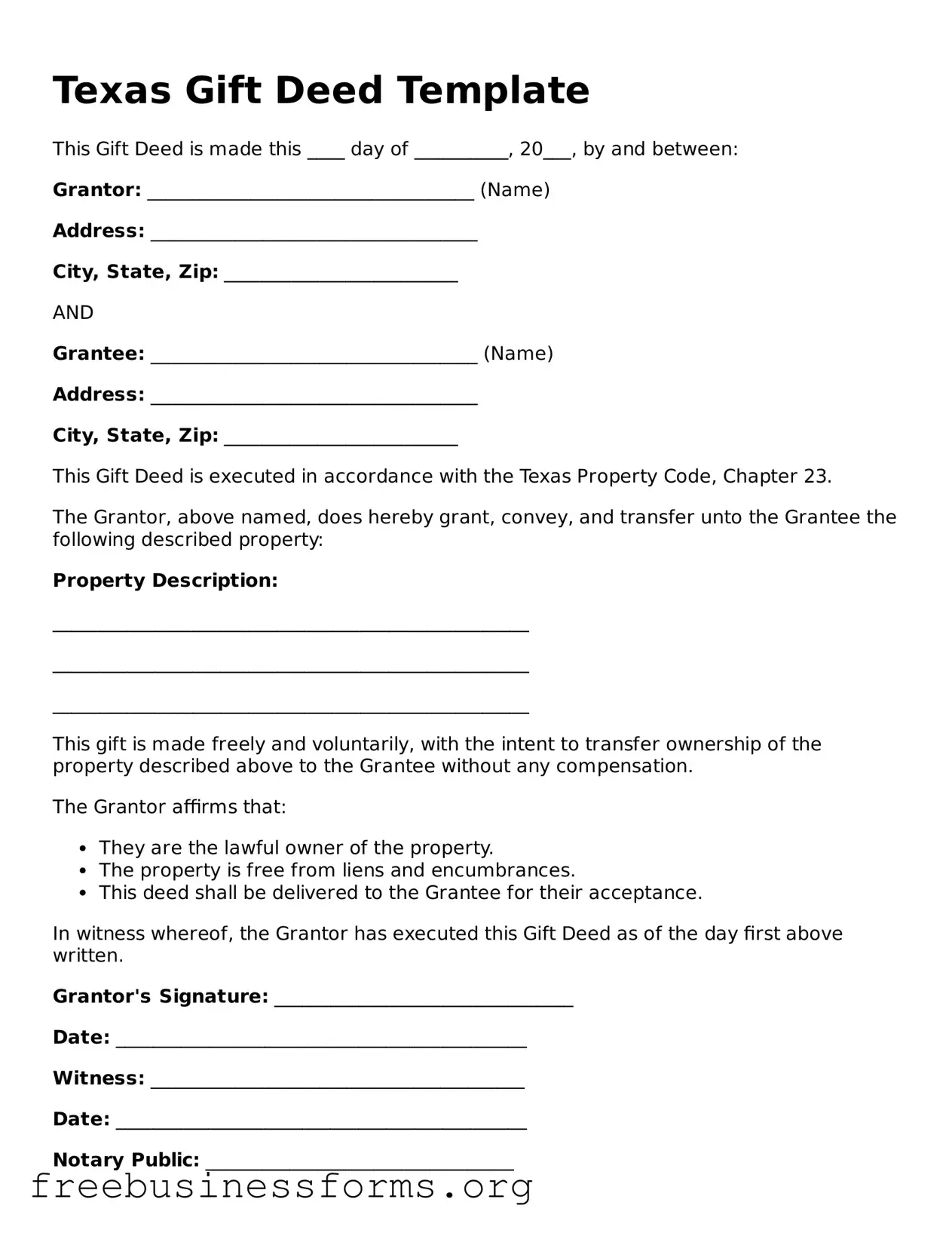Blank Gift Deed Template for Texas
A Texas Gift Deed form is a legal document used to transfer ownership of property from one person to another without any exchange of money. This form is essential for ensuring that the transfer is recognized by the state and protects the rights of both the giver and the recipient. Understanding how to properly complete and file this form is crucial for anyone looking to make a property gift in Texas.
Open Form Here

Blank Gift Deed Template for Texas
Open Form Here

Open Form Here
or
↓ PDF File
Quickly complete this form online
Complete your Gift Deed online quickly — edit, save, download.